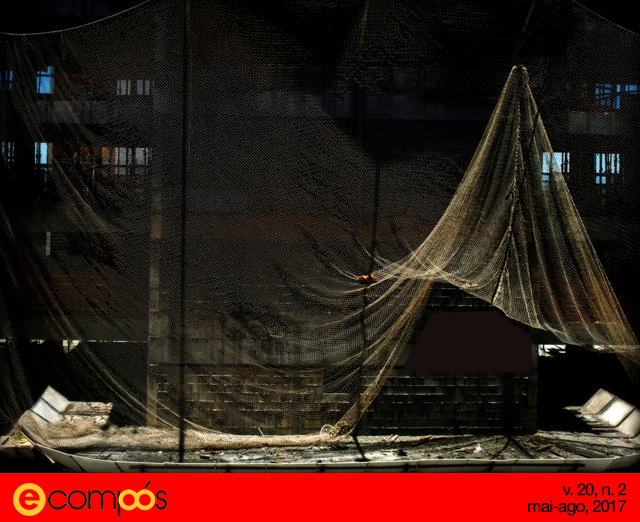Limits and possibilities for the formation of recognition in socio-technical networks
DOI:
https://doi.org/10.30962/ec.1350Keywords:
Redes sociotécnicas. Reconhecimento. Sociabilidade.Abstract
This study examines how the attributes of socio-technical networks can contribute to the emergence of conditions favorable to the emergence of mediatic forms of recognition and also can jeopardize the possibility of this inter-subjective experience. The reflection is based on: the epistemology of recognition developed by Honneth; the principles and functionalities of Facebook, assumed as the reference corpus; and the procedure, adopted and discussed by Deleuze, of the subtraction of elements of an object to release its non-dominant meanings. The relationship between these premises led to the conceptual shift of the recognition for its admission into the context of socio-technical networks.Downloads
Downloads
Additional Files
Published
How to Cite
Issue
Section
License
The submission of originals to this journal implies the transfer, by the authors, of the printed and digital publication rights. The copyrights for the published articles belong to the author, with the rights of the journal over the first publication. The authors can only use the same results in other publications, clearly indicating this journal as the source of the original publication. Because we are an open-access journal, the free-of-charge,educational, scientific, and non-commercial use of the papers is allowed, as long as the source is cited.
Authorship
Any person who has effectively participated in the conception of the study, the development of the experimental part, the analysis and interpretation of data and the final wording, is considered as an author. By submitting an article for publication in E-Compós Journal, the author agrees with the following terms: 1. The author keeps the rights on the article, but its publication in the journal automatically implies the full and exclusive disposal of the copyright rights for the first edition, without payment. 2. The ideas and opinions expressed in the article are the sole responsibility of the author, not necessarily reflecting the views of the journal. 3. After the first publication, the author is authorized to take additional contracts, independent of the journal, for the dissemination of the paper by other means (e.g. when publishing in the institutional repository or as a book chapter), provided that the complete citation of the original publication. 4. The author of a published article is allowed and is stimulated to distribute his work online, always with the proper citation of the first edition.
Conflicts of interest and research ethics
If the developed research or the publication of the article may raise doubts as to potential conflicts of interest, the author should declare, in a final note, that no links to funding bodies have been omitted, as well as to commercial or political institutions. Similarly, the institution to which the author is bound should be mentioned, as well as others that may have collaborated in the execution of the study, evidencing that there are no conflicts of interest with the result already presented. It is also necessary to inform that the interviews and experiences involving human beings have obeyed the established ethical procedures for scientific research. The names and addresses informed in this journal will be used exclusively for the services provided by this publication, not made available for other purposes or to third parties. The copyrights belong exclusively to the authors. The licensing rights used by the journal consist in the Creative Commons Attribution 4.0 (CC BY 4.0) license: sharing (copying and distribution of the material in any media or format) and adaptation (remix, transformation and creation of material from licensed content for any purposes, including commercial) are permitted.



